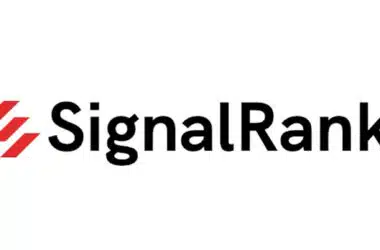The fintech industry is booming, and with this growth comes a demand for professionals in various roles. Here, we delve into the top 10 fintech jobs, their average salaries, the qualifications required, and who’s hiring.
Table of Contents
Insurance Product Manager
With an average salary of $153,698 per year in the United States, insurance product managers are highly sought after.
Their role involves managing and overseeing the development, delivery, and performance of insurance products in a company’s portfolio.
Insurance Product Managers spearhead the development and execution of product strategies, including market research, pricing, and defining unique selling propositions. They manage the product’s lifecycle, ensuring alignment with company goals and regulatory compliance. Their role also involves cross-functional collaboration with sales, marketing, finance, and customer service teams. They analyze product performance, using feedback to drive improvements and identify growth opportunities. Finally, they train sales and customer service teams on the product’s features, and benefits, and target customers to ensure effective selling and support.
Remember the specifics of the role can vary depending on the company’s size, industry, and strategic focus.
To become an Insurance Product Manager, the following qualifications are often required:
- Education: A bachelor’s degree in business administration, finance, economics, or a related field is typically required. Some employers may prefer candidates with a master’s degree in business administration (MBA) or a related field.
- Experience: Several years of experience in insurance, product management, or a related field are usually required. This experience should include areas such as product development, project management, and strategic planning.
- Certifications: While not always necessary, certifications can enhance job prospects. Relevant certifications include Certified Product Manager from the Association of International Product Marketing and Management (AIPMM), Chartered Property Casualty Underwriter (CPCU), or Certified Insurance Counselor (CIC).
- Skills: Insurance Product Managers need a variety of skills such as strong analytical skills to assess market trends, excellent communication skills to work with different stakeholders, and leadership skills to manage projects and teams. They should also have a good understanding of insurance laws, regulations, and underwriting principles.
- Technical knowledge: Familiarity with data analysis tools and software relevant to the insurance industry can be beneficial. Knowledge of systems used for product management, like product lifecycle management (PLM) systems, can also be advantageous.
- Continuing education: Because insurance regulations and products frequently change, ongoing education is important. This may involve attending industry conferences, participating in training programs, or completing relevant coursework.
Accounting Manager
Accounting managers play a crucial role in any fintech company. They ensure financial operations run smoothly, earning an average salary of $88,432 per year. It is important to note that salary varies with the level of experience. If you have less than 6 years of experience you may get lower than the average figure and if you have 10 years or more under your belt then you can expect your annual income easily over $100,000 and up to $130,000.
An Accounting Manager in a fintech company is responsible for overseeing the overall financial and accounting operations within the organization. They play a critical role in managing the company’s financial health by ensuring that all financial transactions, systems, and procedures comply with laws, regulations, and company policies.
Here is a more detailed job description:
- Manage Accounting Operations: Oversee all major accounting operations, including Billing, A/R, A/P, GL, Cost Accounting, Inventory Accounting, and Revenue Recognition.
- Financial Reporting: Prepare and present accurate and timely financial reports for internal and external stakeholders. This includes monthly, quarterly, and annual reports, as well as financial forecasts.
- Month-End and Year-End Close Process: Manage and oversee the month-end and year-end closing process, ensuring timely and accurate completion.
- Compliance and Regulation: Ensure compliance with all local, state, and federal government reporting requirements and tax filings.
- Budgeting: Oversee the creation of budgets, monitor them meticulously, and report any variances to the executive management.
- Financial Analysis & Strategy: Analyze the company’s financial results with respect to profits, trends, costs, and budget compliance. Provide strategic guidance around capital financing options to support company growth needs.
- Team Management: Lead and manage the accounting team. This includes tasks related to hiring, training, performance evaluation, and professional development.
- Systems and Processes: Implement, maintain, and improve accounting systems, processes, tools, and control systems. In a fintech environment, this may also involve working closely with the tech team to optimize finance-related aspects of the product or platform.
- Internal Controls: Develop and implement effective internal controls to prevent inaccuracies in financial statements.
- Stakeholder Liaison: Work closely with external auditors and manage audit processes. Also, collaborate effectively with other teams, such as sales, marketing, and product development.
Candidates for this role typically require a bachelor’s degree in Accounting or Finance, though an MBA or related advanced degree can be advantageous. Professional certifications like Certified Public Accountant (CPA) or Chartered Accountant (CA) are often preferred. Given the nature of the fintech industry, familiarity with relevant software and technologies is also highly beneficial.
Blockchain Developer
Blockchain developers are at the heart of fintech innovation. With an average salary of $105,047 per year, these professionals develop and implement digital solutions using blockchain technology.
A Blockchain Developer is a professional who understands and applies blockchain technology to solve real-world business challenges. They play a crucial role in developing and implementing digital solutions for organizations using blockchain technology.
Here’s a more detailed job description:
- Designing Blockchain Protocols: They develop and design blockchain protocols, which are often custom-tailored to an organization’s needs.
- Developing Blockchain Systems: They design the network architecture that can support a blockchain system. This involves creating the layout of how each aspect of the system will work together.
- Creating Smart Contracts: Blockchain Developers write smart contracts. These are self-executing contracts with the terms of the agreement directly written into code.
- Developing Decentralized Applications (DApps): They use blockchain technology to develop decentralized applications that operate on the blockchain.
- Front-end Designing: Depending on the role, some Blockchain Developers may also need to design and develop the interactive front-end of DApps or blockchain websites.
- Performance Monitoring: They monitor the performance of the blockchain infrastructure, identifying issues and making necessary enhancements or fixes.
- Security Measures: They ensure the security of the blockchain infrastructure, which involves designing the network for intrusion prevention and implementing disaster recovery solutions.
- Staying Updated: They keep up with the latest developments and trends in blockchain technology and cryptography.
- Collaboration: They often work closely with IT teams and other stakeholders to integrate blockchain platforms with existing systems.
Candidates for this role typically require a strong background in computer science, information security, and cryptography. Knowledge of programming languages like Solidity, Python, JavaScript, Go, or C++ is often essential. Some roles may also require experience with specific blockchain platforms like Ethereum or Hyperledger Fabric. Given the rapidly evolving nature of blockchain technology, continuous learning and adaptability are key traits for success in this role.
Quantitative Analyst
Quantitative analysts use data to help companies make financial decisions. They command an average salary of $137,781 per year. If you are at entry level then you can expect your annual pay to be around $75,000 and with years of experience under your belt and relevant skills you can take your annual pay up to almost $250,000.
A Quantitative Analyst, often referred to as a “quant,” uses mathematical and statistical methods to help financial institutions, investment banks, wealth management firms, or other corporate businesses solve financial and risk management problems.
Here’s a detailed job description:
- Developing Financial Models: They create complex mathematical models to identify and analyze financial market trends, investment opportunities, pricing structures, or even risk management methodologies.
- Performing Data Analysis: They use large data sets to analyze, interpret, and forecast market trends and financial data using advanced statistical techniques and software.
- Risk Management: They evaluate risk related to specific investment strategies, portfolios, or transactions. This can involve creating models to simulate potential scenarios or stress tests.
- Strategic Decision Support: They support strategic decision-making by providing insights based on their quantitative analysis. This can influence investment strategies, product pricing, or other key business decisions.
- Algorithm Development: In some roles, quantitative analysts may develop algorithms for high-frequency trading systems.
- Reporting and Presentation: They present complex quantitative concepts and analyses in a clear, understandable manner to stakeholders, including traders, fund managers, and executives.
- Regulatory Compliance: They ensure that all quantitative analysis complies with industry regulations and standards.
- Continuous Learning: Given the ever-evolving nature of financial markets and investment tools, they need to stay updated with new modeling techniques, trading strategies, and regulatory requirements.
Candidates for this role typically require a strong background in mathematics, statistics, economics, finance, or computer science. Advanced degrees such as a Master’s or PhD in these fields are often preferred. Proficiency in programming languages like R, Python, SQL, or C++ is usually essential, along with experience in using statistical analysis and data visualization tools. Strong analytical problem-solving skills, attention to detail, and the ability to work under pressure are key traits for success in this role.
DevOps Engineer
DevOps engineers, earning an average salary of $124,716 per year, work to streamline the development and operation of software. Entry level candidates can expect to get $81,000 per year while experienced DevOps engineers can get up to $190,000 per year.
A DevOps Engineer is a professional who works with developers and the IT staff to oversee code releases. They are either developers who get interested in deployment and network operations or sysadmins who have a passion for scripting and coding and move into the development side where they can improve the planning of testing and deployment.
Here’s a more detailed job description:
- Collaborating with Software Developers: DevOps Engineers work closely with software developers to facilitate the coding and deployment processes, ensuring that systems are efficiently integrated.
- Developing and Maintaining Deployment Architectures: They design and set up deployment systems and architectural processes. They also maintain these systems regularly to ensure smooth operations.
- Automating Processes: One of the main responsibilities of a DevOps Engineer is to automate manual processes where possible, using tools like Puppet, Chef, and Ansible.
- System Troubleshooting and Problem Solving: They troubleshoot and resolve system issues, using their deep understanding of the interconnected processes in complex IT systems.
- Ensuring System Security: DevOps Engineers play a significant role in ensuring the security of the systems they manage. This can include managing access control, running security checks, and more.
- Performance Management: They monitor systems performance and implement changes as necessary to optimize efficiency.
- Continuous Improvement: They continually reassess and improve processes, tooling, and systems to enhance performance and reliability.
- Testing and Deployment Coordination: They coordinate with developers and IT staff to manage code releases, ensuring that systems are stable and secure after each release.
Candidates for this role typically require a strong background in computer science, IT, or a related field, along with experience in programming languages such as Python, Java, or Ruby. Familiarity with Linux fundamentals, scripting languages, and cloud services (like AWS or Google Cloud) is often essential. Strong problem-solving skills, keen attention to detail, and the ability to handle the pressure of troubleshooting system issues in real time are crucial traits for success in this role.
Software Developer
Software developers are integral to any fintech company, creating the programs and systems that these businesses run on. They earn an average salary of $114,931 per year. Entry level software developers can take home $72,000 while experienced devs can take home up to $180,000 per year.
A Software Developer is a professional who uses their knowledge of programming languages and software principles to create applications that perform specific tasks or solve particular problems.
Here’s a detailed job description:
- Designing and Implementing Software: They are responsible for designing, coding, testing, and maintaining software systems or applications. This involves writing clean and efficient code, debugging software, and applying algorithms and data structures.
- Understanding User Needs: They work closely with clients, business analysts, user experience (UX) designers, and other stakeholders to understand and define software requirements.
- Developing and Managing Databases: They often design the structure of databases that form the backend of applications, ensuring they are robust, scalable, and secure.
- Testing and Troubleshooting: They create test plans, test cases, and tools for quality assurance, troubleshoot issues, and fix bugs to ensure the software runs smoothly and meets user needs.
- Software Customization and Enhancement: They upgrade existing software, improve its performance, and add new features based on feedback from users or changes in business requirements.
- Technical Documentation: They document every aspect of a system or application as a reference for future maintenance and upgrades.
- Keeping Up with Technology Trends: They stay updated with the latest industry trends and emerging technologies to ensure they use the most effective practices in their work.
- Collaboration: They often work as part of a team, which may include other developers, project managers, graphic designers, and quality assurance analysts.
Candidates for this role typically require a bachelor’s degree in computer science, software engineering, or a related field. They should have strong problem-solving skills, proficiency in programming languages like Java, C++, or Python, and knowledge of software development methodologies like Agile or Scrum. Familiarity with database management, cloud platforms, and version control systems can also be beneficial.
User Experience (UX) Designer
UX designers, who earn an average salary of $102,123 per year, ensure that digital interfaces are user-friendly and intuitive. Entry level UX designers can get $65,000 while experienced UX designers can earn up to $152,000.
A User Experience (UX) Designer is a professional who designs digital or physical products to ensure they provide a high-quality, seamless user experience. They focus on enhancing user satisfaction by improving the usability, accessibility, and pleasure provided in the interaction between the user and the product.
Here’s a detailed job description:
- User Research: They conduct user research through various methods like surveys, interviews, and usability testing to understand user needs, motivations, and behaviors.
- Creating User Personas: Based on their research, they develop user personas and scenarios to represent the key user groups and help guide decision making.
- Designing Wireframes and Prototypes: They create wireframes, storyboards, sitemaps, and screen flows, and build prototypes to visualize and test their design concepts.
- Usability Testing: They conduct usability tests to observe users’ interactions with the product and identify areas of improvement.
- Collaboration: They work closely with other team members, including UI designers, developers, and product managers, to implement and refine the design.
- Iterative Design: They continuously iterate their designs based on user feedback and business requirements until the product or service meets the desired user experience goals.
- Developing User Stories and Journey Maps: They create user stories and journey maps to outline the different paths that users might take when using a product.
- Accessibility: They ensure that products are accessible to all users, including those with disabilities.
Candidates for this role typically require a background in UX design, human-computer interaction, graphic design, or a related field. Key skills include proficiency in design software, a strong understanding of user-centered design principles, good communication skills, and the ability to empathize with users. Familiarity with coding and web development technologies can also be beneficial.
Sales Representative
Sales representatives in fintech, earning an average salary of $72,024 per year, drive company revenue by promoting and selling its products or services. Sales reps can see their annual salary starting from $36,000 and going up to $142,000.
A Sales Representative is a professional who sells products or services on behalf of a company. They are primarily responsible for establishing contact with potential customers, identifying their needs, and selling them the appropriate products or services.
Here’s a detailed job description:
- Customer Engagement: They engage with customers to understand their needs and preferences, building strong relationships to foster customer loyalty.
- Selling Products or Services: Their primary duty is to sell the company’s products or services to customers by explaining how these products or services can meet the customers’ needs.
- Generating Leads: They identify potential customers through various methods, including networking, cold calling, using referrals, or following up on company-generated leads.
- Meeting Sales Goals: They strive to meet or exceed sales targets set by the company while ensuring high levels of customer satisfaction.
- Product Demonstrations: They demonstrate product features to customers and explain the benefits of these features.
- Negotiating Sales Contracts: They negotiate terms of sale with customers to reach an agreement that satisfies both parties.
- Providing After-Sales Support: They provide support to customers after the sale, addressing any issues or concerns and ensuring customer satisfaction.
- Market Research: They stay informed about market trends and competitor products to effectively position their own products or services in the market.
Candidates for this role typically require a background in business, marketing, or a related field. Key skills include excellent communication and negotiation skills, a customer-oriented mindset, and the ability to work under pressure to meet sales targets. Knowledge of the product or industry can also be beneficial.
Finance Manager
Finance managers oversee the financial health of the company, earning an average salary of $103,774 per year. Finance managers can see their salaries starting from $77,000 at entry stage and $139,000 with experience under the belt.
A Finance Manager is a professional who manages the financial health of an organization. They are responsible for financial planning, managing investment activities, and producing financial reports.
Here’s a more detailed job description:
- Financial Planning: They undertake financial forecasting and budgeting, determining the best strategies to reach the company’s financial goals.
- Managing Financial Resources: They oversee the distribution of the company’s financial resources, ensuring that the organization’s funds are used efficiently and effectively.
- Analyzing Financial Data: They analyze financial data to identify trends, estimate costs, and assist in making informed decisions.
- Producing Financial Reports: They prepare and present financial reports for management, stakeholders, and regulatory authorities.
- Advising on Investment Activities: They advise senior management on investment opportunities and strategies, contributing to business growth.
- Risk Management: They assess financial risks and propose appropriate mitigation measures.
- Regulatory Compliance: They ensure all financial operations comply with financial regulations and standards.
- Collaboration: They often work closely with other departments within the organization, providing financial input and advice on business decisions.
Candidates for this role typically require a bachelor’s degree in finance, accounting, economics, or a related field, while an MBA or similar advanced degree can be advantageous. They should have strong analytical skills, an understanding of financial software, and the ability to strategize and implement financial policies. Excellent communication and leadership skills are also important, as they often lead a team and interact with senior management.
Information Security Analyst
Information security analysts protect the company’s sensitive information, earning an average salary of $89,383 per year. Entry level info sec analyst salaries start at $58,000 and can go up to $136,000
An Information Security Analyst is a professional who protects an organization’s sensitive information from potential threats. They are responsible for implementing security measures, monitoring the organization’s networks for security breaches, and investigating violations when they occur.
Here’s a more detailed job description:
- Implementing Security Measures: They install and use software, such as firewalls and data encryption programs, to protect sensitive information.
- Monitoring for Security Breaches: They continuously monitor the organization’s networks for any security breaches and investigate a violation when one occurs.
- Developing Security Standards and Best Practices: They help plan, implement, and upgrade security measures and controls by establishing protocols and standards for the organization.
- Conducting Risk Assessments and Testing: They conduct periodic audits and testing of the information system to ensure it functions as expected and identify any issues or vulnerabilities.
- Recommending Security Enhancements: They recommend modifications in legal, technical, and regulatory areas that affect IT security.
- Response Planning: They help create disaster recovery plans or respond to cyber threats and incidents.
- Training Staff: They educate the staff about security risks and prevention as part of the organization’s awareness program.
- Staying Up-to-Date with Latest Threats: They research the latest information technology security trends and stay up-to-date with the latest cyber threats.
Candidates for this role typically require a bachelor’s degree in computer science, programming, or a related field. Some organizations prefer candidates with an MBA in information systems. They should have strong problem-solving skills, an understanding of firewalls, proxy servers, SIEM, antivirus, and IDPS concepts. Certifications like Certified Information Systems Security Professional (CISSP) or CompTIA Security+ can be advantageous.
Conclusion
In conclusion, the fintech sector is ripe with opportunities for professionals seeking to blend their passion for technology with finance. There’s a vast array of roles that cater to a multitude of skills and interests. Each role plays a significant part in shaping the future of financial services and offers the chance to make a real impact.
This exciting industry isn’t just about numbers and algorithms; it’s about revolutionizing how we manage, invest, and spend our money. It’s about making financial services more accessible, efficient, and secure. Companies like Stripe, Plaid, Robinhood, and many others are leading the charge and are on the lookout for talented individuals to join their ranks.
Remember, a career in fintech doesn’t necessarily require a background in finance or tech. Many people successfully transition into fintech from diverse fields, driven by curiosity, adaptability, and a desire to learn. So, whether you’re a seasoned professional or a recent graduate, there’s a place for you in fintech.
Stay optimistic, stay hungry, and remember that every expert was once a beginner. The fintech world is waiting for you to leave your mark. So why wait? Start exploring the jobs today, follow thought leaders in the field, and immerse yourself in this dynamic and rapidly evolving industry.
Your fintech journey starts now!




















Recent Comments